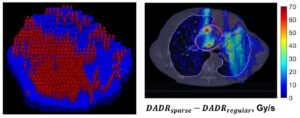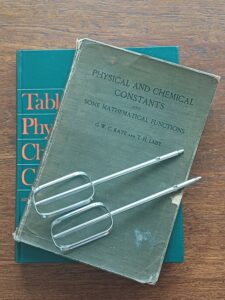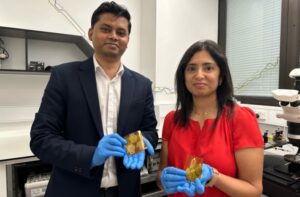Following a visit to the UK’s National Quantum Technology Showcase, James McKenzie is excited about the prospects of UK firms developing “quantum 2.0” technology
Physicists have long boasted of their success in what’s known as “quantum 1.0” technology – semiconductor junctions, transistors, lasers and so on. But the future will increasingly focus on “quantum 2.0” technology, which taps into phenomena like superposition and entanglement to permit everything from quantum computing and cryptography to quantum sensing, timing and imaging.
The incredible possibilities of quantum 2.0 were brought home to me when I attended the UK’s National Quantum Technologies Showcase (NQTS) in central London in November. With the UK home to around half of all quantum businesses in Europe, the event was sold out, with 1000 delegates in attendance. There were also more than 60 exhibitor stands and a packed programme of talks.
The showcase highlighted progress made by the UK’s National Quantum Technologies Programme, which has invested almost £175m in quantum technology over the last decade, supporting 139 business-led projects involving 141 different firms. This money has generated over £390m of additional investment since 2018 – and the government hopes that £1bn of public and private money will have gone into UK quantum research and innovation by 2024.
Quantum tech has been a real success story in the UK. According to management consultants Anchored-In, a total of 46 quantum-tech firms have been set up in the country over the last decade. Together they have raised more than £346m in investment and now employ 850 people, with some £101m invested in the first three quarters of 2022 alone.
Several quantum-tech companies now bringing in as much cash as they spend on R&D, which is always an excellent sign
Indeed, quantum tech was one of the UK’s six fastest-growing sectors in 2021, and the big change in 2022, according to Anchored-In, is that these firms are now starting to generate significant amounts of revenue. In fact, it estimates they have earned more than £50m in sales, with several companies now bringing in as much cash as they spend on R&D, which is always an excellent sign.
Winning businesses
The event in London coincided with the publication by the Institute of Physics (IOP) of a new report designed to support the Department for Business, Energy and Industrial Strategy. Entitled A Vision for Quantum Technologies in the UK, it was created in consultation with IOP members via a mix of stakeholder events and commissioned research. The IOP has also set up a new quantum Business Innovation and Growth (qBIG) group to support commercialization in the UK and Ireland in this area.
In fact, several IOP business-award winners were represented at the NQST, working in everything from quantum computing to quantum communications and sensing. They included Universal Quantum, which is on the way to creating a quantum processor with a million qubits. That would be even more impressive than IBM’s Osprey device, which has 433 qubits and an aim of 4000 by 2024.
Universal Quantum’s electronic modules are based on silicon technology, connected using ultrafast electric field links to form an architecture that can truly scale. The company recently announced a €67m contract with the German Aerospace Center to build the world’s first fully scalable quantum computer based on trapped-ion technology.
Also at the London event was ORCA Computing, which won an IOP business start-up award in 2020. The firm is making great progress on its room-temperature photonic-based quantum computing platform, having announced $15m in investment funding in January 2022. In fact, it is providing the UK’s Ministry of Defence with an ORCA PT-1 computer – the first of its kind that can work at room temperature. Another has been sold to the Israel Quantum Computer Center, “with more announcements to follow soon” according to boss Richard Murray.
Meanwhile, Aegiq, which works in quantum-key distribution (QKD) and won an IOP start-up award in 2021, has launched its first products. Spun off from the University of Sheffield in 2019, Aegiq has received nearly £4m to develop “iSPS” technology, which produces indistinguishable single photons. The first application is expected to be in satellite QKD, with iSPS offering speeds 10 times higher than the best currently available, allowing data to be sent more securely.
I was also intrigued by Cerca Magnetics, which received a 2022 IOP business innovation award for bringing to market the world’s first wearable magnetoencephalography scanner. Using optically pumped room-temperature magnetometers, each sensor element is no larger than a LEGO brick and can measure human brain function with a sensitivity rivalling that of cryogenic superconducting devices. Cerca has already built a light-weight 3D-printed head-mounted scanner cap and installed several systems around the world.

Quantum technology gathers pace
Then there was QLM Technology, which won an IOP business start-up award in 2020 and has successfully trialled its “quantum gas camera” in the field and raised £12m of funding in August 2022. QLM makes low-cost, low-power, tunable-diode LIDAR gas-imaging systems based on infrared single-photon detectors. They can monitor leaks of methane – a potent greenhouse gas – from gas and oil wells. QLM’s early prototypes imaged parts-per-million levels of methane at distances of up to 200 m.
It’s this spirit of innovation that has led to the qBIG prize, which will award small and medium-size enterprises £10,000 in cash and give them mentoring and access to the IOP Accelerator and business network. The award is sponsored by London-based Quantum Exponential, which is the first stock-market-listed firm to start assembling a portfolio of minority investments in early-stage, quantum-tech companies around the world. It trades on the AQSE Growth Market under the ticker symbol “QBIT”, which most Physics World readers will, I am sure, find easy to remember.
- The deadline for entries to the IOP’s 2023 business awards is 16 January: see iop.awardsplatform.com for full details of how to apply.













